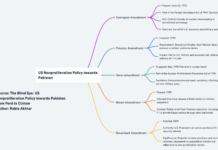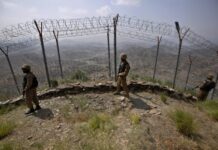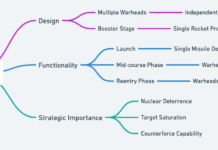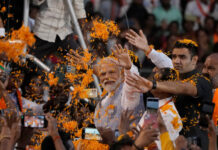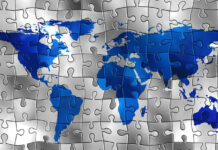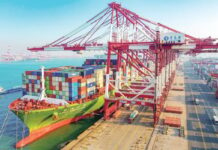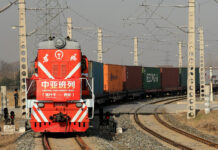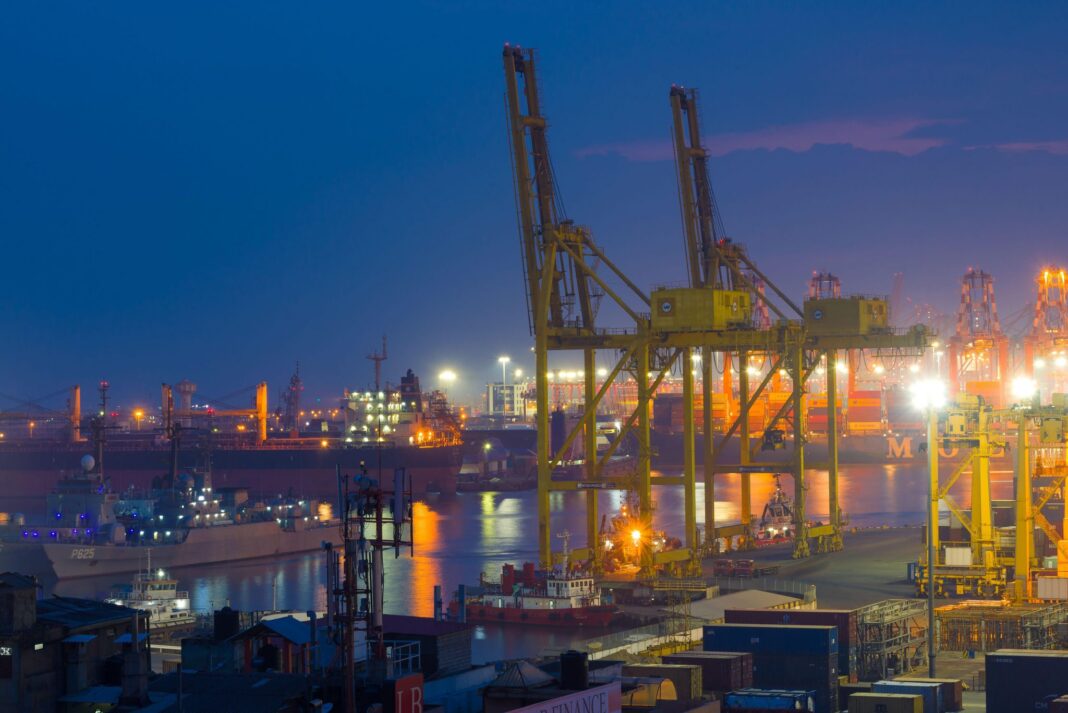Andrew Korybko
The latest stage of the Ukrainian conflict, which began with what Russia regards as its special military operation there but which Kiev and its allies condemn as an unprovoked invasion, has profoundly impacted South Asia. The most immediate consequence is that former Pakistani Prime Minister Imran Khan claimed that America conspired with the opposition to overthrow him through superficially democratic means as punishment for his independent foreign policy after he coincidentally met with Russian President Vladmir Putin on the same day as the latter began his country’s campaign in Ukraine. Regardless of whether or not one shares his interpretation of events, there is no denying that the U.S. is pleased with the change of government in Pakistan, though the subsequent worsening of its economic crisis and failure to achieve any tangible dividends in improving their relations beyond mere rhetoric mean that a lot still remains to be desired.
The second consequence of the Ukrainian conflict for South Asia is that India flexed its strategic autonomy by defying American pressure for it to publicly condemn and subsequently sanction its special and privileged Russian partner. Not only did it refuse to comply with those demands, but it decided to import literally fifty times more oil from Russia than before. Furthermore, India, Iran, and Russia revived the previously stalled North-South Transport Corridor (NSTC), which just entered into operation in early July upon completing a trial run the month prior. This megaproject will serve as a major valve from Western sanctions pressure for Russia and solidifies India’s role as among its top partners anywhere in the world. The strengthening of the Russian-Indian axis could eventually lead to the creation of a joint pole of influence with time.
Moving along, the third most notable consequence of the Ukrainian conflict for the region has been the role that Russia is playing in helping Sri Lanka survive its worst-ever economic crisis. Moscow shipped oil to the island nation when nobody else would, and both former President Gotabaya Rajapaksa and former Prime Minister-turned-President Ranil Wickremesinghe praised it for doing so. In fact, the latter even urged Russia to export fertilizer and food to Sri Lanka too in an exclusive interview that he gave to TASS, one of its top international media outlets. Reviewing these consequences, one can say that they each concern something very different. The one related to Pakistan involves a domestic political crisis that was a long time in the making, but in which foreign influence is suspected to have played a leading role after America allegedly wanted to punish former Prime Minister Khan for his trip to Moscow and his independent foreign policy more broadly. It has not been unquestionably confirmed that this development was linked to the Ukrainian Conflict, though speculation that it was has nevertheless convinced many Pakistanis that this is truly the case. The second consequence connected to India’s rising role as a Great Power is undoubtedly the most meaningful. This, too, was a long time in the making, but the conflict gave New Delhi the opportunity to counter those of its critics who claimed that it was getting uncomfortably close to Washington in recent years. To the contrary, despite continuing to cooperate through the Quad and even the G7, India remains fiercely independent, especially regarding its historical relations with Russia. The entire world has taken notice of India, both to applaud and criticize it, which can be a serious soft power opportunity.
The last consequence challenges the prevailing Western narrative that Russia is an irresponsible Great Power that is supposedly blackmailing the Global South with food and fuel. The reality is that this commodities superpower is not withholding such exports but is eager to export as much of these supplies as possible, both for humanitarian reasons and the tacit intent of expanding its influence across the Global South. Sri Lanka is but one example of the many developing countries that Russia is prioritizing cooperation with nowadays in response to the US-led West’s unprecedented sanctions. From these three consequences, some emerging trends can be discerned. About the first one, some countries’ relations with Russia after the start of its special military operation have become very controversial, both internationally and domestically. This newfound fault line could be exploited by foreign and/or local elements in various ways depending upon the state and its constitutional arrangement. It provides enough of a pretext for them to pressure those leaders, even if they do not openly acknowledge that whatever they are doing is connected to their target’s ties with Russia. As for the second, the Ukrainian conflict provided India the opportunity to showcase its strategic autonomy on the world stage, all the while materially benefiting from the mass import of discounted Russian oil. Other countries like Turkey have also remained neutral and similarly benefited, but nowhere near the scale that India has. The trend is that while the U.S. wanted to impose a zero-sum choice upon everyone, including powers like India, the majority of the international community refused to sanction Russia and thus continues benefiting from trade with it. The final consequence signifies that Russia is rewarding those developing countries that remained neutral by prioritizing the sale of its commodities to them, especially when they need it the most. The pattern at play is that while Russia’s political influence is mostly restricted to those Eurasian regions that it directly abuts (i.e. Central Europe, the South Caucasus, and Central Asia), it is capable of leveraging its status as a commodities superpower to open up doors far beyond those three all across the Global South. Sri Lanka is merely the South Asian example of this emerging policy in practice.
Taken together, it can be concluded that the Ukrainian conflict has indeed had profound consequences for South Asia, all of which were unpredictable. Nobody could have expected that former Prime Minister Khan’s visit to Moscow would coincide with the start of Russia’s special operation in Ukraine and cause the interconnected international-domestic scandal that it did. Nor, for that matter, did anyone think that India would so openly defy U.S. pressure or that Russia would use its export of commodities to make strategic inroads across the developing world. Going forward, observers should continue monitoring these three most notable consequences of the Ukrainian Conflict for South Asia. Pakistan’s political crisis that some speculate is partially linked to Russia’s special military operation still seems far from being resolved. As for India, its globally publicized strategic autonomy imbues it with significant influence throughout the Global South while its successful revival of the NSTC stands the chance of creating an Indian-Iranian-Russian axis. Sri Lanka, meanwhile, is a regional case study of what might turn out to be Russia’s new commodities-centric foreign policy. At the start of this latest phase of the Ukrainian conflict, few could have thought that South Asia would be directly affected, let alone become the region where observers could discover three very important trends. That just goes to show that this part of Eurasia is intimately connected with major global processes due to its countries’ relations with leading economic and political actors. More research should be conducted in order to better understand the full range of consequences that the Ukrainian conflict has had for South Asia, and hopefully this analysis can point others in the right direction.
Andrew Korybko is a Moscow-based journalist and geopolitical analyst.



